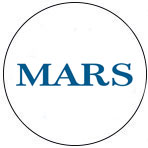
I worked at law firms in Washington DC for almost a decade, where I was a transactional tax specialist, doing mostly cross-border work. I was at Skadden about 15 years ago, when I got a call about an in-house opportunity at Mars, Incorporated. I knew a little bit about Mars, but it was something of a mystery to me. But when I came to speak to them and learned of the international scope and pipeline, I was blown away.
Making the decision to go in-house, I was interested in getting the opportunity to pursue the breadth of subject matters (legal and non-legal) that working for a law firm doesn’t tend to offer. I think going in-house can be a terrific way to diversify your expertise and talents.
When I first joined, understanding the relevance of different legal issues to the wider business was one of the biggest challenges. When you’re in a law firm, by the time the work comes to you, someone in-house has identified the issues, considered the impact on the business, and consulted a lawyer at your law firm. By the time it hits your desk, it’s probably been through a number of filters.
A key part of being a successful in-house counsel is finding ways that you can work with the business to demonstrate your value. Since joining Mars, M&A activity has been a huge part of the business strategy, and I’ve had the good fortune to play a key role in those efforts.
Acquiring Wrigley’s was a huge deal, same with VCA – which led to a whole series of acquisitions in the pet health space. Then we’ve also invested in Kind, which is a health and wellness platform predominantly in the US, but increasing in Europe and elsewhere. On the other side, we also sold Mars Drinks to Lavazza last year – that was the sale of a heritage company, something that we created a number of decades ago and one that was really tough, emotionally, to divest. We’re really pleased to see it in the hands of Lavazza though.
When you think of these types of deals, there’s obviously a huge role for the bankers and finance to play, but there is also a huge role for lawyers. Ultimately, it’s the lawyers who are predominantly negotiating the terms and conditions, undertaking the due diligence, and writing up the agreements. When you work on deals like this, the kind of transformational change that M&A can bring, this is a huge opportunity for lawyers to step up and show to the rest of the business just how they can contribute.
